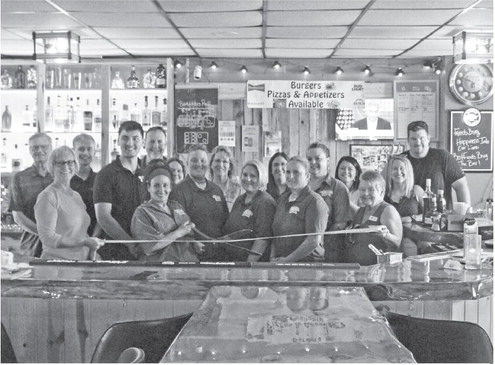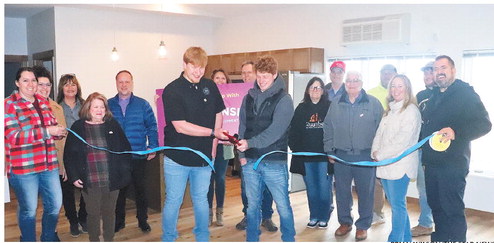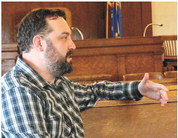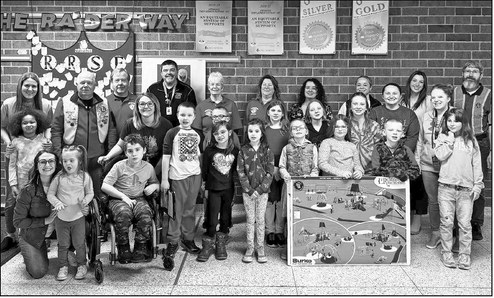Board talks about ways to get community input
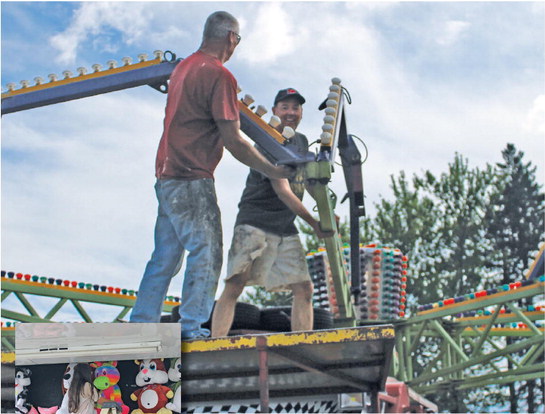

Medford school board looks at ways to address future facility needs
Members of the Medford School Board on Monday talked about, talking about future school updates and the options for getting public input on any future projects or referendums.
Before going to voters with the fall 2020 referendum, the district had paid a firm to have a survey done to see what the community would support. District administrator Pat Sullivan noted the referendum based on that information failed by just 147 votes in an election with the largest number of voters.
“A lot has happened in the world since we started that survey,” said board president Dave Fleegel.
Fleegel asked if the district should be developing a plan for investment in buildings for future of education in order to find some common ground. He noted that in the last referendum they met a lot of people along the way that were a flat out no for anything. Fleegel suggested at some point they should do a very simple survey on their own to gauge community interest.
He said the buildings overall still need advancement for the future whether it is equipment, classroom space or other things.
Board member John Zuleger said some of the decision making and discussion will be prompted by what happens if the district is successful in getting the federal FEMA grant for a storm shelter structure. The district had hoped to hear word on the grant in June, but as of Monday’s meeting Sullivan said the district had not heard anything. He said if the district gets the dome they are at one starting point and if they don’t they are at another.
“It still doesn’t take care of the maintenance stuff,” said board member Brian Hallgren. He noted that doing a piecemeal approach will take the district a long time to do it within the budget process.
Fleegel noted the district is working this summer to replace the galvanized pipe and a big chunk of the parking lot and roof work at the high school. “It will get taken care of,” he said, of them required maintenance but noted more could be done.
Zuleger noted there was about two years, and three months until the next presidential election. He said they should take the advice they were given and look at going to voters then with an entirely new plan.
Board member Don Everhard proposed that before they talked they should reach out to whoever it was that ran the “vote no” group and see if there is anything that could get them to say “yes.” “Maybe you could find middle ground,” he said.
Sullivan said he is not convinced that the “vote no” group had as much of an impact on the election. “That is not why the referendum lost,” he said of the overwhelming no vote in the last referendum attempt. He said he did not think it would have passed even without that group.
Sullivan said that any future referendum needed to be more community driven. He said it needed to be parents going out and speaking to groups and be the ones with presentations at Christmas concerts and events. “We have to be there and be supportive,” he said, noting the primary effort for any referendum to be successful is for the push to come from parents and the community.
He said in general, they have not had parent committees taking the lead. He noted this is the difference in communities that have been able to pass referendums. He said it is not enough anymore that the referendum vote goes with a 9-0 support from the school board.
Board member Aemus Balsis noted that some of the strongest feedback they received following the election was with the need to work within the budget and doing things more piecemeal. He suggested the approach of doing smaller chunks at a time so that there is less room for people to question want versus need. Balsis also supported working with the no group to try to get them in support of things. “I think if they are on our side they aren’t going to back door us,” he said of the late negative advertising campaigns that occurred in recent referendum attempts.
Balsis also said the district needs to look at different strategies to not make it seem like they are shoving a referendum at voters over and over again.
No formal action came from the discussion and Fleegel noted they can look at this again when the district eventually gets a decision on the dome project.
Fund transfers
Thanks to increases in open enrollment revenues, special education billing to Medicaid, and using federal ESSER funds to offset district expenses, the district ended the fiscal year to the good about $1.9 million even after putting the maximum possible contribution into the district post employment benefit trust fund.
The OPEB trust fund pays out post-employment benefi ts. The district had initially budgeted $210,000 to go into that fund this year, but district finance director Audra Brooks proposed funding it to $427,000 which is the maximum allowed under the district’s amortization schedule. This brings the district to being about 60% funded for the benefit. Brooks noted the district is aided on the amount that they put into the OPEB.
It was noted that about $600,000 from the trust fund was paid out to those who retired this year. A few years ago, the district switched all new staff members to a different post employment plan. The result of which will be the OPEB trust fund slowly being eliminated over the next 28 years.
In addition to being able to put more funding to OPEB, the district is also setting aside $1 million into Fund 46, which is a savings account for future buildings and grounds needs. The district cannot withdraw those funds until December 2024 and after that date can add or subtract from Fund 46 at any time.
Brooks noted that unlike fund balance which counts toward aid when spent, Fund 46 gets aided when it is put into the account. This will give the district the ability to do projects in the future.
The remaining approximately $900,000 in money, the exact amount will be known after the audit is completed, will be transferred into the fund balance. This gives the district a boost when it comes to cash flow during the year reducing the need to do as much short term borrowing between the receipt of state aids and tax settlements.
In other business, board members:
_ Approved formally adopting the state educational standards as required by law. “Although we accept the Wisconsin State Standards, many times we exceed them,” Fleegel said.
_ Received the overview for the staffing and beginning of school year reports. The elementary level is still in need of a first grade teacher and a special education teacher. They also have concerns with subs noting they have a 12 week sub opening at kindergarten and one for physical education. Principal Dan Miller said they are considering reducing an interventionist position to assign that person to a classroom. Board member Jodi Nuernberger said she was not in favor of cutting intervention. At the middle school there are two special education positions open. The high school has a full staff in place to start the year.

Rhonda Hartwig and Marlena Mckinney of Old School Saloon were joined by employees and members of the Medford Area Chamber of Commerce Ambassadors group to cut the ribbon formally marking the new ownership of the recently remodeled bar. The bar is located on Main St. in downtown Medford.BRIAN WILSON/THE STAR NEWS

